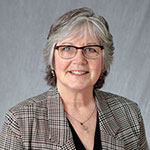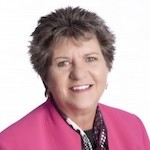Universities with an Outstanding Faculty in Regulatory Affairs
MHA Search
For the latest academic year, we have 170 schools in our MHAOnline.com database and those that advertise with us are labeled “sponsor”. When you click on a sponsoring school or program, or fill out a form to request information from a sponsoring school, we may earn a commission. View our advertising disclosure for more details.
Regulatory affairs programs deal with the regulatory and legal aspects of healthcare. This is a dynamic field as healthcare rules and regulations are always evolving. Students with a degree in regulatory affairs can pursue careers in biomedical engineering, biotechnology, and bioscience. All businesses in these fields, big or small, need to comply with the rules. Hence the need for regulatory affairs expertise and trained professionals in the field is high.
A master’s degree in regulatory science helps students gain the skills and knowledge to work with large biotech companies. These programs help students understand compliance processes in developing new medicines, devices, and food products. Some programs also focus on health policy, which can be useful for students looking to work in governmental, non-governmental, and private consulting organizations. Graduates from these programs can work in diverse settings such as a research lab, with a medical device agency, or in biotechnology firms.
The following article explores five schools—Duke University, George Washington University, Northeastern University, the University of Southern California, and the University of Washington—with exceptional regulatory affairs professors. These faculty members, profiled below, are experts in their field, have been widely published, and have extensive real-world regulatory and legal experience.
Duke University
Duke University, located in Durham, North Carolina, is a world-renowned school. It is consistently ranked among the best schools in the country, and last year, Forbes listed the school among the top ten universities. The New York Times has also noted that Duke graduates are some of the world’s most sought-after and valued professionals. The university counts over one dozen Nobel laureates, three Turing Award winners, 40 Rhodes Scholars, and 25 Churchill Scholars among its alumni.
Nestled within the school of medicine is the Office of Regulatory Affairs and Quality. This department is a no-cost resource to the clinical research community at Duke Health that offers a training program in regulatory affairs. The six- to seven-week program provides an overview of the profession and an in-depth look at regulatory affairs within certain fields, such as drugs, biologics, and medical devices. The office also holds regular events, seminars, and workshops, and hosts expert speakers from the professional, academic, and governmental corners of regulatory affairs.
-

Bruce Kendall Burnett, PhD – Duke University
Dr. Bruce Burnett is the director of regulatory affairs at Duke University, an associate professor in medicine, and a core faculty member in the innovation and entrepreneurship department. As the regulatory affairs department director, he oversees regulatory education, regulatory consultation, and support for regulatory submissions. He currently teaches the ‘research management’ course at Duke University.
Dr. Burnett’s research has appeared in the Journal of Allergy and Clinical Immunology, Biochemistry and Molecular Biology Education, and the American Journal of Respiratory and Critical Care Medicine. He writes about oral immunotherapy clinical trials, vaccines, and preclinical evaluation, among other topics.
Dr. Bruce Burnett holds the Regulatory Affairs Certification (RAC) in U.S. and European Regulations from the Regulatory Affairs Professionals Society. He completed his doctorate in chemistry at the Massachusetts Institute of Technology and an NIH postdoctoral fellowship in genetics at Harvard Medical School.
-

Amanda Parrish, PhD – Duke University
Dr. Amanda Parrish serves as the associate dean and executive director of regulatory affairs and quality in the Office of Regulatory Affairs and Quality (ORAQ) within the Duke University School of Medicine. In this role, she oversees a team of regulatory and quality professionals who provide guidance on FDA regulations for clinical trial research, manufacturing, and product development at Duke.
Additionally, Dr. Parrish provides guidance and support to investigators regarding the regulatory and quality requirements relevant to their clinical research activities and performs several services including regulatory/quality consultation, support for regulatory submissions, and regulatory/quality education.
Dr. Amanda Parrish completed her undergraduate degree in biology from Emory University and a PhD in molecular cancer biology with a certificate in cell and molecular biology from Duke University. Notably, Dr. Parrish holds the US Regulatory Affairs Certification (RAC) from the Regulatory Affairs Professional Society.
George Washington University
George Washington University—often referred to as GW—is based in Washington, D.C., and is considered one of the best research universities in the country. Some of the school’s most prominent research comes out of the Milken Institute of Public Health, the School of Engineering and Applied Science, the Columbian College of Arts and Sciences, and the School of Medicine and Health Sciences. George Washington alumni and faculty include politicians, chief executives, scientists, Nobel laureates, MacArthur fellows, Olympic athletes, Academy Award and Golden Globe winners, and royalty.
The regulatory affairs department is located within the GW School of Medicine and Health Sciences and offers two degrees for aspiring regulatory affairs professionals. The first is an online master’s degree in health science and the second is an online graduate certificate. Students within these regulatory affairs programs learn how to apply global regulatory tools and strategies for all kinds of healthcare products, including drugs, biologics, medical devices, and diagnostics.
-

Melissa Tice, PhD – George Washington University
Melissa Tice is the program director for the regulatory affairs program and an assistant professor of clinical research and leadership at George Washington University. Previously, she served as the vice president of global regulatory affairs at Immunomedics Inc.
Having 30 years of experience in the pharmaceutical or biotech industry, Melissa Tice has been in this regulatory affairs field for more than 23 years. Her regulatory affairs expertise ranges from developing regulatory strategies for drug development programs to obtaining global health authority approvals for key therapeutics in the fields of oncology, cardiovascular disease, and vaccines.
She earned her undergraduate degree in chemistry from the Douglass College at Rutgers University in New Jersey and a doctorate in biological chemistry from the University of Pennsylvania.
Northeastern University
Northeastern University is a Boston-based private institution best known for its cooperative (co-op) education program, which combines classroom work and professional experience. While not required, this experiential learning element is a fundamental pillar of Northeastern’s offerings. Notably, Princeton Review has consistently ranked Northeastern in the top five best schools for internships.
Northeastern offers many academic options for regulatory affairs professionals: most notably, a master of science in regulatory affairs for drugs, biologics, and medical devices. The program prepares students to manage various regulatory activities throughout the regulatory process, from discovery to commercialization. The program is flexible and can be completed part-time or full-time and online, at one of the school’s campuses (Boston, Seattle, Charlotte, or Toronto), or in a hybrid format.
Students can also specialize in one of seven concentrations according to their interests: operational regulatory affairs, strategic regulatory affairs systems, clinical research regulatory affairs, international regulatory affairs, regulatory compliance, general regulatory affairs, and medical device regulatory affairs.
-

Stephen F. Amato, PhD – Northeastern University
Dr. Stephen Amato is the faculty director of graduate regulatory affairs and life sciences at Northeastern University. He teaches or has taught courses in the master of science in regulatory affairs program. Along with his teaching responsibilities, he also oversees the faculty for global regulatory affairs, quality assurance, and advanced manufacturing educational service programs.
Dr. Amato’s research explores global reimbursement for biomedical products, global regulation of biomedical product commercialization, and what drives the success of biomedical product commercialization. He has published his work in reputable journals such as the Journal of Immunology, Cancer Research, and the Journal of Infectious Diseases. He has received Regulatory Affairs Certification (RAC) in the U.S. and the European Union and he is also a consultant for the Regulatory Affairs Professional Society (RAPS).
Dr. Amato completed his molecular and cellular biology doctorate and master’s in business administration (MBA) in marketing at Boston College. He has a bachelor’s degree in biochemical services from Harvard College.
-

Angela Knox – Northeastern University
Angela Knox is part of the faculty for the regulatory affairs master’s program at Northeastern University. She guides students to meet their career goals in operational and strategic regulatory affairs, clinical regulatory affairs, and regulatory compliance. Before entering academia, Professor Knox worked at clinical research organizations for over a decade.
Her areas of expertise include project management, regulatory affairs, leadership, and team-building. Professor Knox has published her research in top-notch journals such as the Journal of the American Society of Nephrology and Neurology. She also received the Partners in Excellence award from the Clinical Research Team at Massachusetts General Hospital.
Professor Knox completed her master of science in project management degree with a specialization in clinical trial design at Northeastern University and her bachelor’s degree in neuroscience and Spanish at Bates College. She is also a certified Project Management Professional (PMP).
University of Southern California
The University of Southern California is the oldest private research university in California. Located in Los Angeles, the school is a large driver of the county and state’s economy contributing $8 billion annually to economic activity in the region. USC counts many notable alumni and faculty in business, politics, athletics, and medicine, including several Nobel laureates.
The Department of Regulatory and Quality Sciences is in the USC School of Pharmacy. While the department was only formed in 2017, it was built upon the School of Pharmacy’s long-standing reputation for excellent regulatory science education, which began in 1999. The department provides master’s programs in regulatory science, the management of drug development, medical product quality, and regulatory management, as well as several graduate certificates in various regulatory affairs fields. In 2008, the school began offering the country’s first professional doctorate in regulatory science.
-

Susan Bain, DRSc – University of Southern California
Dr. Susan Bain is an assistant professor of regulatory and quality sciences at the University of Southern California. She has experience working in several industries, including pharmaceuticals, biotechnology, and medical devices. She served as a vice president of quality and regulatory assurance and operations at a medical device company and has held various top management positions with companies such as Peregrine Corporation, Watson Pharmaceuticals, and Baxter Healthcare.
She earned her DRSc in regulatory science and an MS in regulatory science from USC, as well as a BS in biological science from Cal Poly, Pomona.
-

Eunjoo Pacifici, PhD, PharmD – University of Southern California
Dr. Eunjoo Pacifici is the chair & associate professor of the Department of Regulatory and Quality Sciences at the USC School of Pharmacy. She teaches or has taught courses on medical product regulation, international approaches to medical product regulation, the globalization of the biomedical industry, and writing regulatory submissions.
Her research efforts focus on clinical research and drug regulations, international approaches to product development, research and development in emerging markets, and novel approaches to clinical trial design and implementation. Dr. Pacifici’s work has been widely published in top journals such as the Journal of Neurochemistry and the Journal of Free Radical Biology and Medicine.
She completed two doctoral degrees at the University of Southern California—one in toxicology, the other in pharmacy—and holds a bachelor’s degree in biochemistry from the University of California, Los Angeles.
University of Washington
The University of Washington, affectionately known as U-Dub, was founded just a decade after Seattle was founded to help with the city’s economic development. The school, located in downtown Seattle, is a public research institution known for its research in medicine and science and for having one of the largest library systems in the world. The school’s alumni community includes several Nobel Prize laureates, many Pulitzer Prize winners, Fulbright Scholars, and other distinguished professionals.
The school’s regulatory affairs programs are in the UW School of Pharmacy. The U.S. News & World Report ranked the School of Pharmacy as the seventh-best pharmacy school in the country. Students interested in regulatory affairs can enroll in a master of science in biomedical regulatory affairs or various certificate programs according to their interests.
-

Ali Bouge – University of Washington
Alisha Bouge is an associate director, a practicum director, and an associate teaching professor of the MS in biomedical regulatory affairs program (BRAMS) at the University of Washington School of Pharmacy. She has gained extensive experience in the biomedical regulatory affairs field, particularly with Investigational New Drug applications and Institutional Review Boards (IRBs).
Previously, she has worked for IRBs at the University of Michigan, the Quorum Review, and Stanford University, and co-directed the Clinical Trials Program at Stanford University within the Department of Pediatrics, Stem Cell and Gene Therapy. Also, Ali Bouge is the senior director of regulatory affairs for Exegenesis Bio. Notably, her work puts her at the forefront of new developments in regulatory affairs, including clinical trials.
Alisha Bouge completed her master of science degree in biomedical regulatory science at the University of Washington. She has also earned the Regulatory Affairs Certification (RAC).
-

David Hammond – University of Washington
David Hammond is the principal consultant at Hammond Clinical Trial Consulting, LLC where his practice focuses on regulatory issues associated with research, development, and FDA requirements. At the University of Washington, he serves as a teaching associate professor in the Department of Pharmacy, an associate director of the BRAMS program, and the lead for the Clinical Trials Certificate. His teaching and research focus on international regulatory affairs, clinical trial development and execution, and project management for biomedical clinical trials.
David Hammond’s experience also includes designing and implementing standard operating procedures for clinical research organizations and international clinical trial operations in the United Kingdom, Canada, China, and New Zealand.
He has served as a board member and president of the Organization of Regulatory and Clinical Associates and a member of the national committee overseeing the educational and certification programs of the Association of Clinical Research Professionals.
Hammond completed his master of science degree in biomedical regulatory affairs from the University of Washington and his bachelor of science degree in zoology from the University of Idaho.
Methodology
MHAOnline used the following criteria to select professors for inclusion in this list:
- University affiliation: Professors must be actively teaching at an accredited university in the U.S.
- Publication: They have published their research in influential peer-reviewed journals and presented it at industry conferences.
- Institutional and peer recognition: They have received awards, distinguished titles, notable grants, and research funding.
- Professional commitment: They have built curricula and programs, become leaders in professional organizations, volunteered extensively in their communities, and/or consulted for companies in the field.

